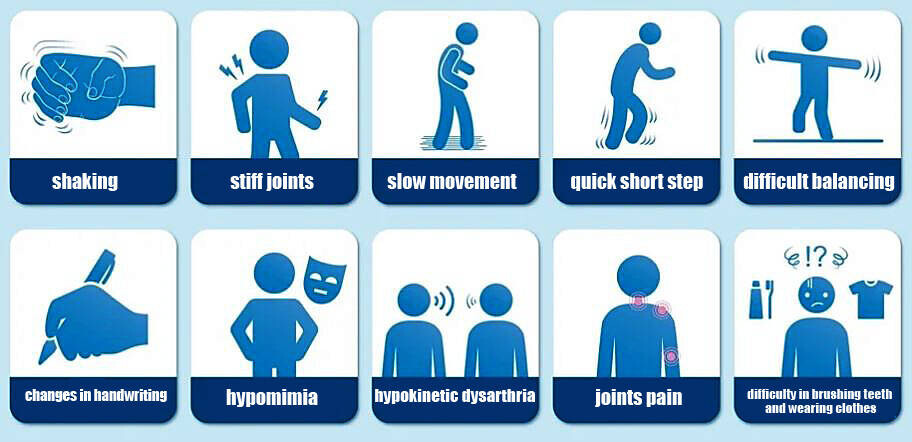
In Taiwan, where more than 2,000 people are diagnosed with Parkinson's disease annually, the Parkinson Alliance of Taiwan stated yesterday that the National Health Insurance (NHI) coverage criteria for treating "freezing of gait" are excessively restrictive, causing difficulties for patients. The alliance is urging the government to expand the coverage criteria.
To commemorate World Parkinson's Day on April 11th annually, the Parkinson's Disease and Movement Disorders Center at National Taiwan University Hospital and the alliance held an outdoor event for patients and their families at Taipei 228 Peace Memorial Park.
The alliance stated that as aging is a major risk factor for Parkinson's disease, the number of Parkinson's patients is increasing in line with Taiwan's aging society. They added that approximately 80,000 people currently suffer from Parkinson's disease, with more than 2,000 new diagnoses each year.
Professor Wu Ruei-mei (吳瑞美), the chairman of the alliance and a neurology professor at National Taiwan University, explained that Parkinson's disease is a degenerative neurological disorder caused by the gradual loss of nerve cells that produce dopamine in the substantia nigra region of the brain. She added that damage to these nerve cells impairs nerve transmission, affecting motor coordination. It typically develops between the ages of 50 and 60 and is more common in men than women, she said.
Professor Wu explained that early symptoms of Parkinson's disease may include tremors, hypomimia (reduced or loss of facial expression), slow movement, changes in handwriting, and an increased risk of falls. She added that symptoms can vary greatly from person to person, making subtle early signs easy to overlook.
Professor Wu stated that patients with early-stage Parkinson's disease can manage their symptoms through medication and lifestyle adjustments such as regular physical activity, and with effective management, they can maintain an active and independent life for many years.
However, Professor Wu pointed out that patients with mid- and late-stage Parkinson's disease more commonly experience "freezing of gait," a temporary inability to move, which is dangerous and frustrating. She added that this freezing of gait can be triggered by the wearing off of medication or changes in medication, such as dosage or timing adjustments.
Professor Wu emphasized that the problem is that the National Health Insurance coverage criteria for carbidopa-levodopa extended-release tablets for Parkinson's disease management are limited, putting many patients at risk of freezing of gait.
She noted that Deep Brain Stimulation (DBS) is an effective surgical treatment for motor symptoms and can reduce the need for medication, but many patients are afraid of the invasive procedure or do not meet the criteria for it.
Professor Wu also added that Magnetic Resonance-guided Focused Ultrasound (MRgFUS), a minimally invasive surgery, is another effective treatment option, but it is not yet covered by National Health Insurance, leaving many patients struggling to afford the surgery costs out of pocket.
Understanding Parkinson's Disease and the Situation in South Korea
Parkinson's disease is a representative neurodegenerative disorder caused by a deficiency in the neurotransmitter dopamine. Dopamine plays a crucial role in various brain functions, including motor control, emotion, and motivation. The gradual destruction of dopamine-producing nerve cells in a brain region called the substantia nigra mainly leads to motor symptoms such as tremors, rigidity, slow movement, and postural instability. Non-motor symptoms like depression, sleep disorders, and cognitive impairment can also accompany the condition.
The number of Parkinson's disease patients in South Korea has been steadily increasing, and this growth rate is expected to accelerate as the society ages. According to data from the Health Insurance Review & Assessment Service, the number of Parkinson's patients in South Korea was estimated to be about 110,000 in 2023. This figure is much higher than in Taiwan, indicating a significant social and economic burden associated with managing Parkinson's disease.
The Danger of Freezing of Gait and the Importance of Treatment
Freezing of gait is a symptom where Parkinson's disease patients experience their feet getting stuck to the ground and being unable to move when trying to walk or initiate movement. This can occur suddenly, causing patients to fall or lose balance, leading to serious injuries. It is particularly common in late-stage Parkinson's patients, significantly hindering their independence in daily life and severely reducing their quality of life.
Medication (such as carbidopa-levodopa extended-release tablets) to alleviate freezing of gait symptoms is essential for managing the condition. However, the current national health insurance criteria in South Korea only apply restrictively to patients meeting specific conditions, leaving many unable to receive appropriate treatment due to financial burdens.
The Need for New Treatments and Health Insurance Coverage
Deep brain stimulation is recognized as an effective treatment for improving motor symptoms in patients with advanced Parkinson's disease whose medication effectiveness has decreased. Additionally, minimally invasive surgeries like Magnetic Resonance-guided Focused Ultrasound are emerging as alternatives that can reduce the burden associated with traditional surgery.
However, deep brain stimulation involves the patient's psychological burden regarding surgery and strict surgical criteria, while Magnetic Resonance-guided Focused Ultrasound is not yet covered by South Korea's national health insurance, forcing patients to bear the full cost of treatment themselves.
As pointed out by the Parkinson Alliance of Taiwan, it is also urgently necessary in South Korea to expand health insurance coverage for various treatments, including those for freezing of gait, to improve the quality of life and ensure the safe daily lives of Parkinson's disease patients. The government should listen to the voices of patient groups, rationalize coverage criteria, and actively review the inclusion of new treatment technologies under health insurance. This would alleviate the financial burden on Parkinson's patients and their families and, furthermore, contribute to reducing overall healthcare costs for society.
[Copyright (c) Global Economic Times. All Rights Reserved.]



























